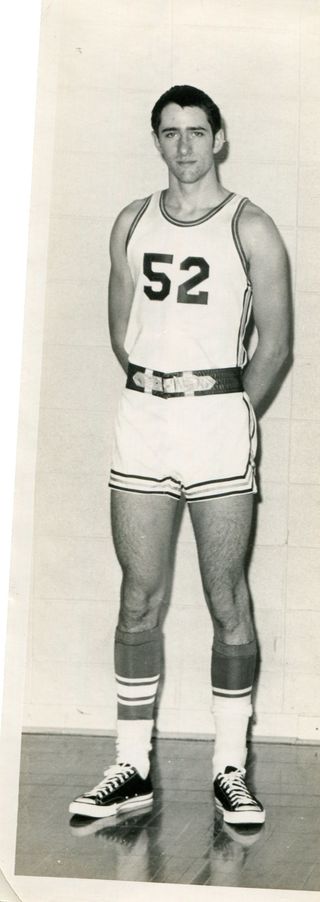Recently, along with two of my West Point colleagues, I was invited to spend two days with one of the National Basketball Association’s (NBA) most successful franchises. The general manager (GM) and his associates had read about my research on grit and its role in peak performance, and wanted to learn more. My first reaction to this invitation was one of surprise. It seemed to me that, almost by definition, any basketball player that excels enough to be on the roster of an NBA team must be very high indeed in grit. I accepted the invitation, with the expectation that there was little they could learn from me about grit, but there was probably a lot I could learn from them about how to identify players high in grit, how to nurture and develop grit, and how to leverage it to enhance individual and team performance.
As I thought more about what we might talk about, I reflected on the years of research I have completed on individual and group performance in small military teams. What might the results of this and related research performed by other psychologists suggest about the performance of elite professional basketball players? Immediately, General Douglas McArthur’s famous quote came to mind: “On the fields of friendly strife are sown the seeds that on other days, on other fields will bear the fruits of victory.” General McArthur was referring to the role of sports in shaping attributes that would later benefit the soldier in battle. In this present case, the question is reversed in the sense that a professional sports team is looking to military psychologists for clues, based on research with soldiers in stressful and often dangerous settings, for how to better identify future players and to prepare athletes for high-stakes competition.
One thing seemed certain to me. The combination of grit and talent are critical, and interact multiplicatively. But talent and grit, however important for elite performance, are not sufficient to set the occasion for sustained success at the highest levels, especially among teams. Other attributes of character must also be entered into the equation. For the Army, these attributes include loyalty, duty, respect, selfless service, honor, integrity, and personal courage. These character attributes are formalized in Army doctrine, and in various ways are systematically inculcated, sustained, and grown in soldiers beginning in basic training and continued throughout the soldier’s career. Soldiers who internalize and display these attributes are successful. Those who do not usually do not remain in the Army for very long. Would this also be true for elite professional athletes?
The day of our consultation finally arrived. My colleagues and I were very eager to engage with the GM and his associates. We were greeted by the GM and ushered into the team’s conference room. After the requisite pleasantries were dispensed, the GM began the dialogue with a short briefing about the team’s history and operating philosophy. The content of his talk surprised me. Although using somewhat different adjectives, the GM described a team philosophy and vision that was founded squarely on character. While talent and skill are obviously a prerequisite to NBA performance, the bulk of his comments centered on character attributes like honesty, caring, and selfless service. And this wasn’t just “lip service.” These ideas were systematically and formally codified in the team’s doctrine. Except for minor differences in terminology, it was clear that this NBA team, at least, viewed character (and grit) as the difference between capable players and teams, and elite players and teams.

I opened my part of the discussion (my colleagues followed, and focused more on leader development — perhaps a topic for a subsequent blog) with parallels between elite sports and combat. There is much on the line in each case, albeit lives are not usually at risk in sports. The parallels include time constraints, high stakes, high stress, team cohesion, trust, highly specialized skills, and the critical role of character. We then discussed the role of talent and grit in determining player performance at this elite level. All things being relative, within the context of an NBA team there is variation in talent, as well as in grit. I introduced a matrix of grit (low or high) on one axis, and talent (low or high) on the other. This creates four combinations of talent and grit. The GM and his staff immediately began placing former and current players into these quadrants and citing behaviors that supported the contention that the organization’s best players over the past quarter-century clearly fell within the high grit, high talent corner of the matrix. A useful conversation about behavioral indicators of just what scouts should look for in assessing grit (they are already pretty good at assessing talent) ensued.
I concluded by leading a discussion of the role of other character attributes on elite basketball performance, using Peterson and Seligman’s (2004) classification of character into 24 individual strengths embedded within six overarching moral virtues.[1] The GM and his team were intrigued by the 24 strengths and their relevance to performance. Interestingly, capacity to love was singled out as particularly important, because it speaks to caring for your teammates, a quality that, if absent, can be highly disruptive to a team. I pointed out that in many of my studies of combat soldiers, this same character strength is seen as indispensable to unit cohesion and morale. In any case, the discussion reinforced my sense that elite performance — whether in sports or combat — requires a combination of talent, grit, and other strengths of character.
I was followed by my two West Point colleagues, Lieutenant Colonel Ian Irmischer and Captain Drew Bond, who focused on leadership and team dynamics. The GM was interested in how to develop leaders, and my colleagues described West Point’s core leadership course (see my March 2017 blog) and the Army’s approach to assessing leader performance. Our hosts must have found the discussion interesting and useful. Despite being scheduled for a 90 minute presentation, our interaction with them continued for over seven hours. To make a great day even better, the team invited us to this season’s first playoff game, a rousing victory over their opponent!
The lesson from all of this is clear. For high performing teams—sports, military, and others—there are common elements to elite performance. Talent alone is not enough. Talent and grit, while important, may not suffice. But a combination of talent, grit, and relevant character strengths are required to sustain elite performance at both the individual and, especially the team level. General McArthur had it half right. I would add the corollary “From the fields of armed combat, the seeds of the fruit of victory in other domains can be learned.”
Note: The views expressed herein are those of the author and do not reflect the position of the United States Military Academy, the Department of the Army, or the Department of Defense.
References
[1] Peterson, C., and Seligman, M. E. P. (2004), Character Strengths and Virtues: A Handbook and Classification (New York: Oxford University Press).


